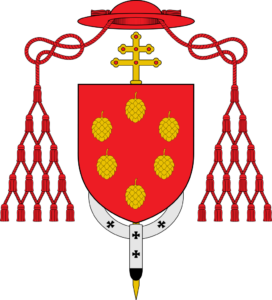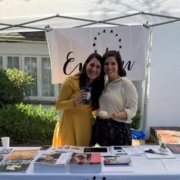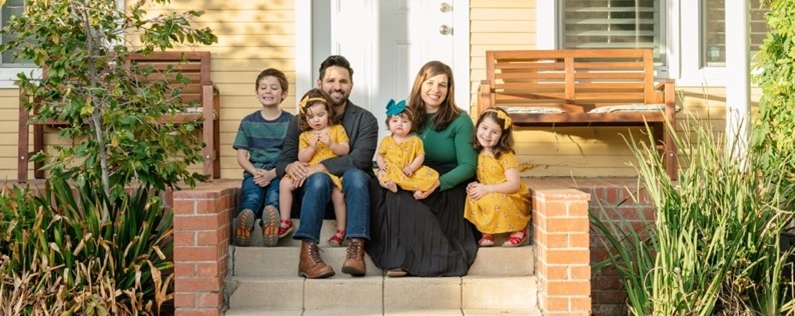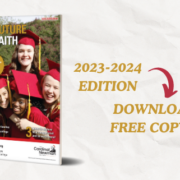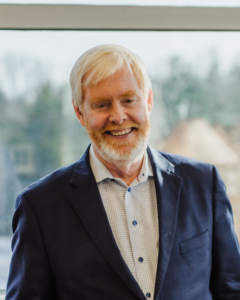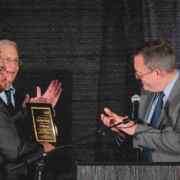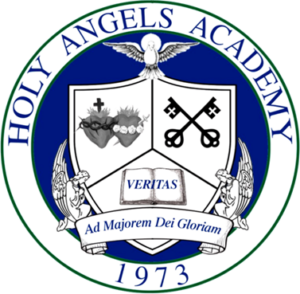The Bishop’s Role in Discerning Catholic Identity
A bishop’s oversight of Catholic education within his diocese—including schools, home schools, and colleges—is indispensable. His support and encouragement are also invaluable.
That’s the experience of President Stephen Minnis, who has led an exciting renewal of faithful education and formation over the last two decades at Benedictine College in Atchison, Kan. Minnis says Archbishop Joseph Naumann of Kansas City “has always been available to help me as the College faces significant issues, and his advice has been invaluable as we chart the course of the College.” He says it was the Archbishop’s request that Benedictine review its compliance with Church teaching on Catholic education, create a culture of evangelization on campus, and give special attention to family and life issues.
It has always been so: the success of Catholic education depends on the active leadership of bishops. The bishops at the First (1852) and Second (1866) Plenary Councils of Baltimore deemed Catholic elementary schools vital to the protection of children from “the seeds of error or vice” and required every parish to erect a Catholic school. Decades earlier in 1789, Bishop John Carroll established Georgetown University as the first institution of Catholic higher education in the United States.
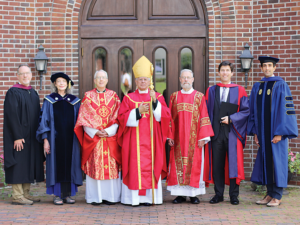
Magdalen College’s Mass of the Holy Spirit. From left to right: Mr. John Klucinec, Dr. Mary Mumbach, Fr. Stephen Rocker, Bishop Peter Libasci, Deacon Karl Cooper, Dr. Ryan Messmore (president of Magdalen College), Dr. Erik van Versendaal.
The bishops’ responsibility to oversee Catholic schools and colleges is noted in many Vatican documents, and it is most clearly defined in the 1983 Code of Canon Law, St. John Paul II’s Ex corde Ecclesiae (1990), and The Identity of the Catholic School for a Culture of Dialogue (2022).
Catholic education is an apostolate of the Catholic Church founded by Christ to make disciples and to teach all that He commanded. In the formation of young people, the Church is a necessary partner with parents, who are a child’s primary educators and require their bishops’ guidance in matters of faith and morals. Especially in the last two centuries, the Church has assisted families by providing Catholic schools and colleges under the oversight of the local bishop and oftentimes religious orders. Ex corde Ecclesiae requires that Catholic college leaders report to their bishops: “Every Catholic University, without ceasing to be a University, has a relationship to the Church that is essential to its institutional identity” (27). And in The Identity of the Catholic School we read, “Indeed, the ‘ecclesial nature of Catholic schools, which is inscribed in the very heart of their identity as schools, is the reason for the institutional link they keep with the Church hierarchy’” (50).
It is the bishop’s responsibility “to promote and assist” in the preservation and strengthening of Catholic identity in education. The American bishops typically leave the day-to-day oversight of parochial and diocesan schools to a superintendent or other administrator, but The Identity of the Catholic School reiterates the duty and responsibility of the bishop for this oversight, describing in detail specific procedures and actions he must do to protect Catholic teaching.
A bishop should visit all the Catholic schools in his diocese “at least every five years, personally or, if he is legitimately impeded, through the coadjutor Bishop or the auxiliary or the Vicar general or episcopal Vicar… or some other presbyter,” the Vatican says. The document does not contemplate delegating this to a lay person or religious organization.
The success of Catholic education depends on the active leadership of bishops.
The bishop can “appoint or at least approve teachers of religion for his diocese,” and he can also remove them or require they be removed, “if reasons of religion or morals require it.” Since all teachers in diocesan schools are required to infuse the Catholic faith into their subjects, the bishop has authority to remove any of them “if conditions for his or her appointment are no longer met.” This generally means following the moral teachings of the Catholic Church and not creating public scandal. This is because teachers hold an “ecclesiastical munus and office,” which means “any post which by divine or ecclesiastical disposition is established in a stable manner to further a spiritual purpose” (Can. 145 §1).
The bishop also has the right and duty to intervene at the college level, if he believes the character of a Catholic college is compromised. Catholic theology professors—whether or not at a Catholic institution—are required to obtain the mandatum from their local bishop, acknowledging that they are teaching in full communion with the Catholic Church. Ex corde Ecclesiae requires a periodic review of a Catholic college’s program and communication with the bishop, which for many of the Newman Guide colleges has resulted in a very productive relationship. President Ryan Messmore of Magdalen College of the Liberal Arts in Warner, N.H., tells us that each year the bishop comes “to celebrate our Mass of the Holy Spirit on the first day of classes and to hear the faculty and the president take the Oath of Fidelity to the Catholic Church.”
Schools operating independently from the diocese require a formal recognition by their bishop that the school can use the Catholic label. Even a school or college holding canonical status (a religious institute or juridic person) must request this approval from the local bishop, should they desire to open a school or college in a particular diocese, according to the Vatican’s 2022 document on Catholic identity.

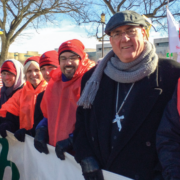

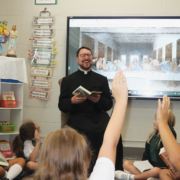
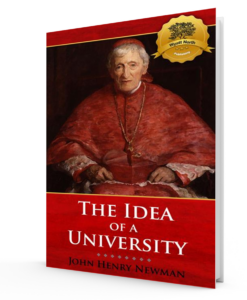 With the absence of priests, orthodoxy and Catholic identity waned in many places, leading to a further crisis in the schools. The mass exodus of women religious from the schools is yet another reason why the presence of priests is more important than ever.
With the absence of priests, orthodoxy and Catholic identity waned in many places, leading to a further crisis in the schools. The mass exodus of women religious from the schools is yet another reason why the presence of priests is more important than ever.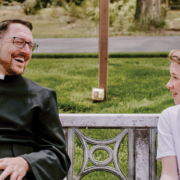
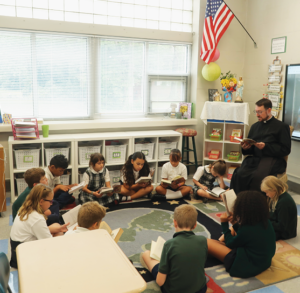 Despite initial low enrollment numbers, Fr. Rossi still felt the support of much of his staff and many Catholic families who desired strong Catholic education.
Despite initial low enrollment numbers, Fr. Rossi still felt the support of much of his staff and many Catholic families who desired strong Catholic education.
